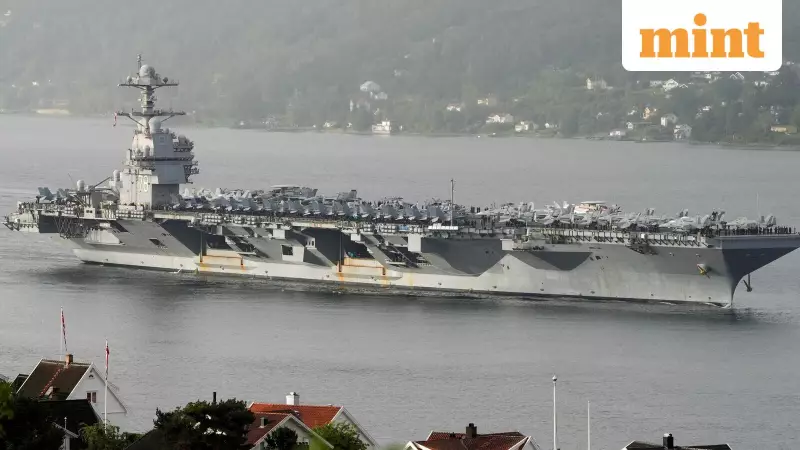
In a significant diplomatic development, the United Kingdom has decided to withhold crucial intelligence about suspected drug trafficking vessels from the United States, citing concerns over the legality of American military operations in the Caribbean and eastern Pacific.
Intelligence Sharing Halts Over Legal Concerns
According to a CNN report citing sources familiar with the matter, Britain believes that the attacks being conducted by the US are illegal and does not want to be complicit in US military strikes. The intelligence, which was typically sent to the Joint Interagency Task Force South stationed in Florida, will no longer be shared through these channels.
The decision comes amid a substantial US military deployment in the region, with naval and air forces operating under the stated mission of curbing drug trafficking. However, the UK has taken a firm stance against participating in what it views as unlawful military actions.
Escalating US Military Operations
Over recent weeks, President Donald Trump's administration has intensified its campaign against drug trafficking, carrying out a series of strikes on boats in the Caribbean and the Pacific that Washington claims were transporting drugs. The military operations have resulted in significant casualties, with reports indicating that US forces have killed 76 people in strikes on alleged drug-running boats, including six additional deaths in recent operations.
The military buildup has escalated further with the arrival of the USS Gerald Ford aircraft carrier strike group in Latin America. The world's largest aircraft carrier, whose deployment was ordered nearly three weeks ago to help counter drug trafficking, has entered the US Naval Forces Southern Command's area of responsibility, which encompasses Latin America and the Caribbean.
International Criticism and Legal Challenges
The US operations have drawn criticism from international human rights bodies. Volker Turk, the United Nations High Commissioner for Human Rights, told AFP that these instances violate international human rights law. He emphasized that counter-narcotics operations "should not bring in issues of war or conflict or international humanitarian law."
When asked if the strikes could constitute extrajudicial killings, Turk stated: "That's precisely what needs to be found out and investigated."
The Trump administration has formally notified Congress that the US is engaged in "armed conflict" with Latin American drug cartels, describing them as terrorist groups as part of its justification for the military strikes. This characterization has raised eyebrows in international legal circles and among US allies.
Meanwhile, Venezuela has repeatedly warned against the US military presence in the region, even as President Trump has ruled out war with Venezuela while asserting that President Maduro's days are "numbered." The situation remains tense as diplomatic relations continue to strain over the US approach to combating drug trafficking in the region.





